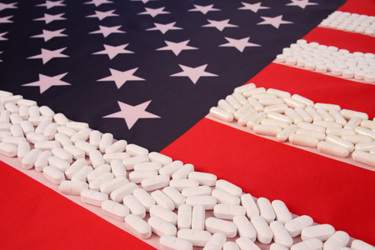U.S. Tariffs And Their Tenuous Impact On Clinical Trials
By Amanda Laskey, life sciences senior analyst, RSM US LLP

Many industries are feeling the repercussions of enacted and potential tariffs, with some companies accelerating imports and building inventories in the first few months of the year to avoid significantly higher tariff rates.
Biopharma companies thus far have not been significantly impacted by tariffs, with pharmaceuticals currently exempt from tariffs. However, tariffs on pharmaceuticals are expected to be announced soon, with the U.S. administration stressing that developing a U.S.-based pharmaceutical supply chain is a matter of national security.
To prepare for these expected tariffs, biopharma companies have been focused on the impact of tariffs on their global supply chains, where active pharmaceutical ingredients, or APIs, may be initially manufactured in India, for example, shipped to Italy for manufacturing into final formulations, and then sent to patients across the globe.
To counter overseas production and encourage domestic manufacturing, President Donald Trump signed an executive order on May 5, 2025, that aims to reduce the approval timeline for new pharmaceutical plants in the U.S. The order directs the FDA to streamline reviews and work with domestic manufacturers to provide support. In addition, the order tasks the FDA to improve enforcement of non-U.S. API producers.
There have been several announcements by major pharmaceutical companies that they’re making significant investments in U.S. manufacturing, but smaller companies in the industry that rely on an outsourcing model may not have the opportunity to onshore their manufacturing. In addition, there are concerns that the impact of tariffs on commercial supplies will lead to price increases in the U.S. and could potentially result in challenges for healthcare systems as well as generic drug providers that already struggle with low margins.
Will Tariffs Impact Clinical Trial Site Selection?
Clinical-stage biopharma companies have questioned the impact of tariffs on trial site selection, with some even wondering if tariffs may encourage companies to look for non-U.S. clinical trial sites. However, many may not know that products imported into the U.S. as prototypes, including clinical trial lots, are not subject to tariffs. Specifically, per the Harmonized Tariff Schedule Code 9817.85, prototypes to be used exclusively for development, testing, product evaluation, or quality control purposes are exempt from tariffs.
Companies that import ingredients to engage in the development, testing, product evaluation, or quality control of materials may be able to import them duty-free. In addition to the requirements to be used in R&D, according to Jodi Ader, international trade advisory services senior manager at RSM U.S. LLP, the materials must meet the following provisions:
- They must be in the pre-production, production, or post-production stage.
- They must be imported in limited noncommercial quantities that follow industry practice.
- They may not be sold after importation into the U.S.
- They may not be incorporated into products sold in the U.S.
- They may not be subject to quantitative restrictions such as quotas, antidumping orders, or countervailing duty orders.
There have been numerous rulings by U.S. Customs and Border Protection (CBP) confirming that clinical lots and other pre-commercial R&D supplies for companies are exempt from tariffs under the prototype exemption. For example, per a ruling from CBP in 2014, CBP indicated that raw material imported solely for Phase 3 clinical trials qualifies for duty-free treatment. The company noted that none of the materials would be used for commercial purposes or sold, and any material not consumed during testing would be destroyed.
To import clinical trial lots duty-free, companies must submit a declaration of use to U.S. CBP when filing their customs entries. They must also keep detailed records, including supporting documents, reports, and records, to present to CBP upon request. These records must be maintained for five years from the entry date.
Tariffs May Impact Future Trials Indirectly
While biopharma companies may be interested in altering their trial locations for various reasons, tariffs on the clinical lots should not be a critical focus. However, companies should expect their trial costs to increase overall in the U.S. Biopharma companies typically work with hospitals to conduct clinical trials, either directly or via CROs. For these hospitals, the cost of medical supplies used to facilitate the trials will likely increase, as the hospitals will often not segregate the supplies used in clinical trials from those used in routine patient care. These pass-through costs can increase the cost associated with trials.
Furthermore, for companies whose clinical lots may be manufactured within the U.S., there may be shortages as other companies look to move their manufacturing onshore. These shortages can delay clinical trials, which have already seen extended timelines over the past decade, and can increase the overall cost of a trial.
The Takeaway
Overall, while biopharma companies will not be immune from the impact of tariffs, for purposes of determining clinical trial locations, companies should be aware that prototype exceptions should allow them to import clinical lots into the U.S. without significant additional costs due to tariffs. While clinical trial costs will likely increase and there may be increased demand for U.S.-based manufacturers, we should not expect a significant reduction in U.S. clinical trial sites simply related to tariff policy.
About The Author:
 Amanda Laskey is a senior manager in the tax services practice in the New York City office of RSM US LLP, focusing on clients within the life sciences industry. In addition, she is a member of the firm’s Industry Eminence Program and works alongside RSM’s chief economist and other senior analysts to understand, forecast and communicate economic, business and technology trends affecting middle market businesses. Amanda has nearly 10 years of experience assisting clients with claiming research and development (R&D) tax credits at both the federal and state levels. She is involved in the firm’s credits, incentives and methods group. In addition, concerning the R&D tax credit, Amanda provides deep industry knowledge for the firm and clients on the Orphan Drug Credit and supports evolving changes to the capitalization of R&D expenditures under section 174.
Amanda Laskey is a senior manager in the tax services practice in the New York City office of RSM US LLP, focusing on clients within the life sciences industry. In addition, she is a member of the firm’s Industry Eminence Program and works alongside RSM’s chief economist and other senior analysts to understand, forecast and communicate economic, business and technology trends affecting middle market businesses. Amanda has nearly 10 years of experience assisting clients with claiming research and development (R&D) tax credits at both the federal and state levels. She is involved in the firm’s credits, incentives and methods group. In addition, concerning the R&D tax credit, Amanda provides deep industry knowledge for the firm and clients on the Orphan Drug Credit and supports evolving changes to the capitalization of R&D expenditures under section 174.
